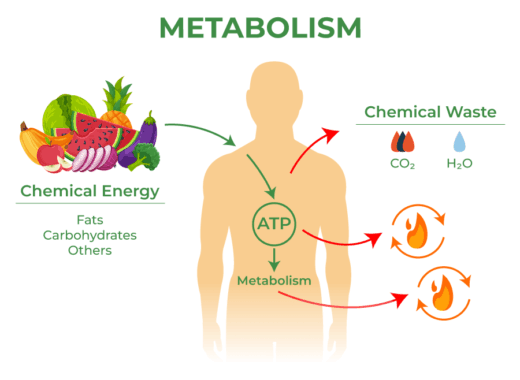While dieting and sunbathing may seem unrelated, they’re more connected than you might think. In the summer months, when people spend more time outdoors and expose their bodies to sunlight, important questions arise: Is sunbathing harmful while dieting? Does sunlight help or hinder weight loss? Should I take vitamin D supplements if I’m on a calorie-restricted diet?
In this guide, we’ll explore how sun exposure affects metabolism, appetite, vitamin D levels, and what to eat (or avoid) when sunbathing so you can make smart, safe, and health-conscious choices while soaking up the sun.

Is Sunbathing Harmful While Dieting?
Sunbathing is not inherently harmful while on a diet. In fact, moderate, responsible sun exposure can support overall health and even enhance certain metabolic functions. However, if you’re following a low-calorie diet, your body may be more sensitive to heat, dehydration, or fatigue, especially in the summer sun.
Here are a few things to watch out for:
- Dehydration: Dieting often involves reduced food volume, which may mean less water intake through food. Combine that with sweating in the sun, and you’re at higher risk of dehydration.
- Low blood sugar: If you haven’t eaten enough before sunbathing, the heat may intensify dizziness or nausea.
- Electrolyte imbalance: Losing salt and minerals through sweat while on a restrictive diet may affect energy and mood.
Tip: Always hydrate well before sunbathing, and avoid going out on an empty stomach if you’re following a low-calorie meal plan.
What Foods Should Be Avoided While Sunbathing?
Just as some foods are perfect for poolside snacking, others can actually increase your sensitivity to sunlight, cause bloating, or interfere with hydration.
Avoid these foods while sunbathing:
- Citrus fruits in large amounts (especially lime and grapefruit): They contain compounds called furanocoumarins that can increase sun sensitivity and cause skin irritation (known as “lime burn”).
- Salty snacks like chips or processed meats: These lead to water retention and dehydration.
- Heavy, greasy foods: Burgers, fried items, or creamy sauces slow digestion and can make you feel sluggish or nauseated in the heat.
- Caffeinated sodas or energy drinks: These increase urine output, contributing to dehydration.
Instead, opt for light, water-rich foods that cool the body and support hydration (more on that below).
Should You Take Vitamin D While Dieting?
Vitamin D plays a critical role in immune function, bone health, and mood regulation, but it also supports fat metabolism and insulin sensitivity, two major components of successful weight loss.
If you’re dieting especially on a calorie-restricted or low-fat plan you may be at higher risk for vitamin D deficiency, since:
- Fewer dietary fats = lower absorption of fat-soluble vitamins (like vitamin D)
- Limited food intake = lower overall nutrient intake
- Indoor workouts or sunscreen use = less sun exposure
Supplementation may be helpful, particularly if blood levels are low. Talk to a healthcare provider about testing your vitamin D and choosing an appropriate dosage. In general, 600 to 2,000 IU per day is considered safe for adults.
Getting 15–20 minutes of direct sunlight on your skin, several times per week, can naturally boost your vitamin D levels without supplements. Just avoid the strongest sun hours (12 PM–3 PM) and always protect your skin after the initial exposure.
Does Sunlight Affect Metabolism?
Yes sunlight has a direct and indirect impact on metabolism. Here’s how:
- Vitamin D and fat burning: Adequate vitamin D levels improve insulin function, which regulates blood sugar and fat storage.
- Circadian rhythm and hormones: Morning sunlight exposure helps regulate cortisol and melatonin, balancing hunger and energy hormones like leptin and ghrelin.
- Mood and activity: Sunlight boosts serotonin, making you feel more energetic, which can lead to more physical activity and better food choices.
A study published in Diabetes (2014) even found that UV exposure in mice reduced weight gain and metabolic dysfunction, possibly due to nitric oxide release in the skin.
So yes sunlight, especially early in the day, can support your weight loss efforts, if approached responsibly.
What Are Some Low-Calorie Snacks for Sunbathing?
When you’re lounging by the pool or relaxing on the beach, it’s easy to reach for sugary or salty snacks. But there are plenty of diet-friendly, refreshing options that keep you full and cool without sabotaging your calorie goals.
Here are some of the best low-calorie sun snacks:
- Watermelon slices: Sweet, hydrating, and only 30 calories per 100 grams
- Cucumber sticks with lemon and sea salt: Crunchy and refreshing
- Greek yogurt with berries: Protein-rich and gut-friendly
- Frozen grapes or pineapple chunks: A cool alternative to popsicles
- Rice cakes with avocado or cottage cheese: Light and satisfying
- Cold herbal teas with mint or ginger: Support digestion and hydration
- Homemade chia pudding: High in fiber and keeps you full for longer
Always pack your snacks in a cooler with an ice pack to maintain freshness and prevent bacterial growth especially dairy-based items.
How Does Sunlight Affect Appetite?
Ever noticed that you’re less hungry in the heat? You’re not imagining it. Sunlight and warm temperatures have a real effect on appetite-regulating hormones and digestive function.
Key ways sunlight impacts appetite:
- Higher serotonin levels (triggered by sun exposure) can reduce hunger and increase feelings of satisfaction.
- Heat reduces ghrelin (the “hunger hormone”), especially during the hottest parts of the day.
- Your body prioritizes cooling over digestion, so it may naturally suppress appetite in extreme temperatures.
This is one reason why summer diets often feel easier to follow you’re naturally inclined to eat lighter meals, more fruits and veggies, and smaller portions.
However, don’t skip meals entirely especially if you’re swimming, walking, or exercising outdoors. Your body still needs fuel, even if your appetite is lower.
Final Tips: Combining Safe Sun Exposure with Smart Dieting
- Time your sunbathing for early morning or late afternoon.
- Hydrate frequently with water, coconut water, or sugar-free electrolyte drinks.
- Snack smart with fresh, water-rich produce and light proteins.
- Don’t mix sun with alcohol, which increases dehydration risk.
- Protect your skin, use SPF 30+, wear a hat, and reapply sunscreen every 2 hours.
- Know your limits, heat fatigue is real, especially on a low-calorie diet.
Erdem Hospital Supports Healthy, Balanced Living Even Under the Sun

At Erdem Hospital in Istanbul, we understand that true wellness is about balance not just between diet and exercise, but between nature and science, sun and safety. With over 37 years of experience, our healthcare professionals provide personalized guidance on weight management, vitamin supplementation, skin health, and metabolic support.
Whether you’re working toward a healthier body, managing nutritional deficiencies, or seeking expert support on your wellness journey, Erdem Hospital offers holistic solutions tailored to your lifestyle and environment including your time in the sun.